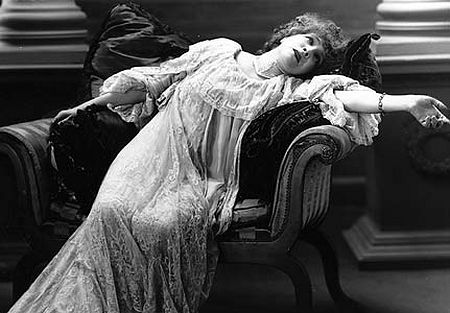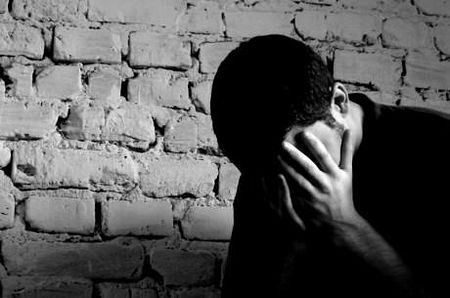 Dr. Dmitry Avdeev
Dr. Dmitry Avdeev
Neurasthenia is considered to be the most frequent form of neurosis. It was singled out in the 1880s as an individual nosologic unit. The American doctors Beard and Van Dusen, independently of each other, first wrote about this neurosis in 1869. Since then the diagnostics of neurasthenia have spread widely. Professor B.D. Karvasarsky offers a curious example: during the First World War, a special program of learning was created in the British army, upon completion of which the doctor received the title "Expert in Neurasthenia."
The given illness, as seen from its very name, is expressed by nervous weakness right down to the deep exhaustion of a person’s living powers. Sleeping hearths of infection become more acute, cholestitis, gastritis, ulcers of the stomach or duodenum make themselves felt. The illness appears to be a catalyst, highlighting the somatic pathology.
The portrait of a neurasthenic is typical — this is a person who is quick-tempered, irritable, quickly wound up, "at the drop of a hat," in whom the nerves are clearly giving out (hypersthenic form of neurasthenia) or, just the opposite, lethargic, whining, feeling tiredness and exhaustion in all of his life powers (hyposthenic form). But it is interesting to note: the high irritability and irascibility of the neurasthenic is not directed toward himself, but towards others! Everybody and everything irritates him, he is often capricious, is easily angered and enraged, but almost never rises to the spiritual height of knowing his own imperfections, mistakes and sins. In this way, neurasthenia is more or less an egotistical neurosis, nurtured by the passion, which the holy fathers called pride or conceit.
 Hysterical neurasthenia
Hysterical neurasthenia
Father Alexander Elchaninov wrote: "Nervousness and so on are expressions of sin, and specifically, pride. The main neurasthenic is the devil. Can one imagine a humble, kind, patient person as a neurasthenic?" "Irritability comes from not knowing oneself, from pride, and also from not realizing the depth of our nature’s damage, and from not knowing the meek and humble Jesus." (Righteous St. John of Kronstadt). "No one should justify irritability with some illness" (Elder Ambrose of Optina).
The Archbishop Arseniy (Zhadanovsky) wrote the following concerning the reasons for irritability and loss of spiritual peace: "Sometimes an irritable state comes upon you suddenly, discontent with people around you, an oppressed state of the soul, melancholy, disappointment. The littlest thing — and your mood is ruined. Why? Apparently, your spiritual ground was prepared for this mood previously. Irritability, discontent are called out by envy, hostility towards them…"
Thus, we can infer, that neurasthenia is more or less the consequence of departing from Christ, falling into neo-heathenism. It is an expression of passions. Neurasthenia can be considered in its way the opposite of meekness, humility, patience and a peaceful structure of the spirit.
Priests of the Church paid particular attention to keeping peace of the soul under any life circumstances. "I do not wish you riches, or fame, or success, or even health, but only spiritual peace. This is the most important. If you will have peace — you will be happy" (Ven. Alexis of Zosima). A logical deduction follows: the best medicine for neurasthenia is deep repentance, a Christian way of life, with patient and humble carrying of one’s cross.
Depression
There are underscored two principal types of depressive states in clinical psychiatry. One of them is related to internal (endogenic) reasons and is less dependent on psychological factors and situations (endogenic depression) The other, in contrast, develops from different tribulations, troubles, which build up in the individual-psychological exceptionalities of a person, on the scale of his values (neurotic depression).
The expression of depressive disorders is noticed in various mental illnesses. This is the most widely disseminated syndrome of spiritual disorders; about 5% of the Earth’s population suffer from it, and up to 60% of all mental pathology consists of depression states. Depression has "grown younger": its victims are no longer only the elderly or middle-aged, but also youths and even children.
Dejection, unhappiness, and melancholy — these are so characteristic of our contemporaries. Today, many consider that depression is an illness of civilization. Science knows much about the origin of depressive disorders, but among scientists, it is unacceptable to speak of sin, while the reason for many forms of abnormal dejection is precisely the sinfulness of the person.
Depression — is in its way the soul’s signal about its unfortunate, disastrous condition. But this is not "crying over sins," but the suffering of an unrepentant soul, to which demons whisper: "All is lost, there is nothing to hope for… besides death there is nothing to expect…" Unfortunately, one often hears such complaints from patients.
Depressive neurosis sometimes begins because of life complications. The person’s mood falls, nothing makes him happy, everything irritates him, he becomes dejected and everything around him is seen in a dark light. Often similar states come about because life did not follow "the right scenario," the way one wanted; something desired was not achieved, some sort of conflict occurred, a breakdown, one offended another…
Depression has different masks: sometimes it is expressed physically, such as stomachache, headache and regular sleeplessness. This type of disorder is called masked depression.
The Bishop Varnava (Beliaev) in one of his works included the statement of the Venerable Sincliticius of Alexandria: "There is sorrow that benefits and sorrow that harms. Sorrow that benefits consists of grieving over your sins, over the sufferings of others and about the evil in general taking place around us… This is "Godly sorrow" (2 Cor. 7:10). But our enemy brings us worldly sorrow, which leads to melancholy. This state has to be driven away primarily by prayers and psalm-singing." He wrote further: "There is one act in the science of salvation, which brings a person to God by the shortest route. That is — sorrow for sins… Spiritual experience and the portent of grace in the heart convince us, that solitary prayer accompanied by hot tears of repentance is the most powerful method of comfort. True, the first tears are bitter, acrid, but later one feels relief, joy and a ray of light. The further a person moves along the path to salvation, the lighter the load on the soul… This is a wonderful act of grace!"
But there is another sorrow, which the Apostle Paul calls the sorrow of the world (2 Cor. 7:10). A fashion-plate cries about not having a new spring hat and that her boots have gone out of style, that "this one" began to court "that one," and "that one" is prettier or happier than she. A young person is sad about not having enough pocket money to spend on pleasures; a couple is unhappy with each other, each only seeing defects in the other. Workers, doctors, engineers, lawyers — all are unhappy with their insufficient salary, there is never enough; a merchant is in despair over a loss, and so on, and so forth. Everyone cries and mourns, even those living in wealth and luxury. They sorrow over things, which are mortal. This is a demonic sadness… A person suffers, sighs and tries to live his life without sadness, forgetting about God and the salvation of his soul.
The person goes to a doctor, who prescribes sedatives andmood-improving drugs. Clearly, this is not healing a spiritual illness, but numbing the consciousness of a person… But we must mention that we have neurotic depression in mind here. In those cases when the depressive state continues for more that two or three weeks, has daily (morning — worse, evening — better), and seasonal (spring and fall) fluctuations, the sick person requires medical attention.
The most immediate connections are determined between neurotic depressive disorders and the virtuous-moral state of a person. As doctors, we, of course, relieve the sufferings of our patients with medications, discussions, as well as simple human sympathy, but satisfaction during a patient’s visit comes only when the discussion turns to soul, faith, and repentance. With the consent and willingness of the patient, we try to evaluate the symptoms of his illness from a spiritual viewpoint.
The spiritual roots of this neurosis descend into egoism, pride and passions… A Christian gains great joy from doing good deeds, caring for others, refusing personal benefits.
The sin of suicide
In the conclusion of the chapter on depressions, it is appropriate to speak of suicide, since it is precisely despair that is the forerunner of this terrible act. Suicide is the willing deprivation of one’s life. “Suicide could be the fruit of the despair, which overshadows self-awarenessof the existenceof God, His Truth and retributionin the afterlife. In its turn this delusion happens to be the fruit of the human willfulness, predilection for Earthwith itsperishablegoods, repletionof these goods orbitternessover thelackof these goods” said the priest-martyr Philosopher Ornatsky.
The sad statistic of suicides in Russia was secret for a long time. In the beginning of 1989, for the first time in the last 60 years, the overwhelming numbers were publicized, and each was preceded by hopeless despair, the loss of the reason for living. Yearly more than 60,000 Russians lay hands on themselves — this is a whole city of suicides. And this is particularly tragic, because the suicides among young people between the ages of 20-24 have grown by 2.9 times. In other age groups of adults, this number increased by 1.6-1.8 times.
Here is another eloquent fact: the level of suicides in Russia in 1915 equaled 3.4 persons per 100,000, in 1985 it was 24.5, in 1991 it was 31, and in 1993 it was already 38.7. Even higher numbers were noted for 1998.
Twenty percent of all suicides are performed by children and youths up to 19 years. In 1996 alone: youths between the ages of 5-14 committed 2756 suicides; of 14-19 — 2358, and these are only the recorded suicides. Ninety-two percent of children’ suicides were performed by children in unhappy families.
What are the reasons for suicide? The doctors’ point of view is the following: an overwhelming number of suicide victims are mentally healthy. Suicide is a personal crisis. Social factors do not have a decisive part. This is a spiritual problem.

Archbishop John (Shahovsky) wrote: “Poor suffering suicides! You did not accept atonement, the short-term earthly purifying sufferings — sweet for the acceptor — oh, sweeter than those imaginary pleasures for which you died in grief. Yes, it was in your power to do that which the evil power whispered to you that did not have any power over you at that moment, but it was also in your power not to do that. It was in your power to know that God exists, that He is not only the highest Expression of Truth and Fairness, unattainable for our understanding, but even greater than all these human ideas. It was in your power to understand, that God cannot give a Cross and not give strength, — that it was in your power to turn to God, to save yourself by calling (not falsely) His Name…”
“We entered this world not by our will, so we have no right to leave it without the knowledge and the will of The One Who sent us here” said Saint Augustine.
Suicides before their suicide have no idea that behind
their backs stands a vile, inexpressibly evil spirit,
urging them to kill the body, break the precious
"clay vessel" protecting the soul until
God’s set time. And this spirit suggests, and urges,
and demands, and compels, and frightens with all sorts of
fears: only in order that a person would press the trigger
or jump over the windowsill, running away from life, from
his unbearable anguish… The person doesn’t
even guess that the "unbearable anguish" —
is not from life, but from his depressed spirit, which
sees everything in a black light. The person thinks that
he himself is reasoning, and comes to a suicidal decision.
But in fact, it is not him, but the one whom the Lord
called "murderer from the beginning…"is
speaking through his thoughts.
A person only agrees unknowingly, unseeingly takes the sin
of the devil on himself, binds himself to sin and to the
devil… One repentant prayerful word, just one sign
of the salutary Cross and one look on It with faith
— and the web of evil is torn, the person is saved
by the power of God… Only a small spark of living
faith and devotion to God — and the person is saved!
Igumen Nikon (Vorobyov) wrote (to his spiritual children) “When you are peaceful, think to what a darkening of the soul one has to arrive, so that some insignificant sorrow could drivehim into the eternal, most dreadful sufferings. No matter how hard it is here, evenifwe were to live onearth for thousands of years in great sufferings — still, they will come to an end. But the sufferings in hell have no end.”
Obsessive-compulsive disorders and fears
Obsessional phenomenon can be defined as appearance of thought, idea, image or any other appearances in one’s consciousness. However, these ideas are not connected with anything that is taking place in one’s consciousness at the moment and are perceived as emotionally unpleasant. While intrusive thoughts are having an impact on the consciousness, they generate emotional tension and increase an individual’s disadaptation in the environment. Compulsive thoughts appear beyond one’s will and desire and can exist as appointed thoughts, memories, perceptions, doubts as well as actions.
Compulsive fears are called phobias, intrusive thoughts
are called obsessions, and compulsive actions are called
compulsions.
Perhaps there is no single man on the planet Earth who
doesn’t know what fear is. Fear is inherent in the
nature of a peccable man, in the nature that instinctively
afraid of external threats. Numerous scientific studies
are devoted to the theme of fear. There is also a
theological view on that matter. We shall touch upon some
of the aspects of the problem.
So what is fear? Psychological literature defines fear as emotion, which appears when an individual is in danger. Whereas pain is a consequence of actual influence of some hazardous factors, fear is a result of anticipation of pain. Fear comes in many different forms – apprehension, worry, fright and terror. If the source of danger is unknown then it is defined as anxiety. Inadequate response behavior for fear is called phobias.
Phobic syndrome (the Greek word phobos means fear) is a widespread phenomenon. There are many phobic conditions. Here are a few examples: nosophobia (fear of fear of having a specific disease); agoraphobia (fear of open spaces); claustrophobia (fear of enclosed spaces); ereuthophobia (fear of blushing); mysophobia (fear of contamination and germs), etc.
All those fears are pathological, which means they are not connected to real danger.
Some fears result from cowardice. Unfortunately it can be promoted for example by parents, if they say every five minutes something like: “Don’t touch it!”, “Don’t climb up there!”, “Don’t get near that thing”, etc.

Psychologists mark out so-called parental fears, which transmit themselves from parents to children. Such are, for example, fear of height, fear of mice, dogs, cockroaches, etc. The list can be continued on and on. Thus certain steady fears usually appear in children of those with such phobias.
A distinction also must be made between situational fear, which arises in a moment of threat, and the personality fear, which is connected with certain character traits and patterns.
In “The Exact Exposition of the Orthodox faith” St. John Damascene wrote: ”Fear is divided into six varieties: shrinking, shame, disgrace, consternation, panic, anxiety. Shrinking is fear of some act about to take place. Shame is fear arising from the anticipation of blame: and this is the highest form of the affection. Disgrace is fear springing from some base act already done, and even for this form there is some hope of salvation. Consternation is fear originating in some huge product of the imagination. Panic is fear caused by some unusual product of the imagination. Anxiety is fear of failure, that is, of misfortune: for when we fear that our efforts will not meet with success, we suffer anxiety”.
St. Isaac of Nineveh said: “Fear is loss of good hope”. “Fear is the cause of many troubles, - wrote Macarius of Unzha in one of his works, - decay of spirit and loss of calmness weakens the body, and one can be ill while not being ill”.
I recollect a patient suffering from massive fear of death, which appeared after he had a myocardial infarction. Doctors did their best. With God’s help his heart got stronger, but the fear of death never disappeared. It got especially strong in any enclosed space and also when he was traveling on public transport. My patient was a religious person and it was easy to speak frankly with him on those matters. I remember asking him whether anything could happen to him without God’s Will. The response was a confident “No”. “Well then, - I went on, - do you really believe that you can die by some nonsensical accident?” To this question he gave his affirmative “No” once again. So I told him “Removeyourselffromthis burdenand ceaseto fear”.
Eventually we came to the decision that he is “letting himself die” if it is the will of God. Some time later he told me that when the fear appeared again he said to himself: “My life is in Holy Hands. Dear Lord! Thy will be done!” and his fear vanished, dissolved like sugar in hot tea, and he never experienced it again.
In my practice I quite often come across cases of various fears which come out of religious ignorance and misunderstanding of the essence of the Holy Orthodox faith. Some patients in a state of confusion and fear would come for an appointment and say something like: “I have sinned dreadfully for handing over the candles during the divine service with my left hand!” or “I’ve lost my baptismal cross! Now all is lost!” or “I found a cross lying on the ground and picked it up. Now I shall probably have to bear someone else’s cross now, that person’s destiny and sins!” I can only give a bitter sigh, listening to such lamentations.
Another common problem is fears originating from superstitions (“black cats”, “empty pail”- like: such superstitions go, that to meet a person with an empty pail means bad luck and if a black cat crosses your path be prepared for unfortunate events).
In fact those superstitions are nothing in themselves but only a sin, which should be confessed during Confession. “The fear of the Lord – that is wisdom” is written in the Holy Writ (Job. 28, 28). If there’s no place for the fear of the Lord in one’s soul, then neurotic fears tend to take place in it. The Truth is substituted for surrogate. What’s important, in Holy Writ we read, there is no fear in love; but perfect love casts out fear because fear involves torment (1 John 4, 18). As it turns out, fear in one’s soul means lack or even absence of love.
The Holy Fathers are pointing out that fear often comes with vanity. Fear of public speaking (or fear of social interaction) is quite illustrative of the case. Such fears come when a man is afraid of appearing not as clever or talented as he thinks he is. It’s noteworthy that when a person comes to understand that fact, he puts up with it and allows himself to make a mistake, he starts to think what to say rather than how to say it, and strives to please God before everything else, the situation changes altogether, the person is improving and his soul finds harmony.
That’s common for neurotic fears that they are either not conditioned by any real danger, or this danger is far-fetched and is not likely to happen. An orthodox therapist, doctor Vladimir Nevyarovich, justly observes, “Compulsive thoughts appear when a question “What if?” comes to mind. After that question arises, thoughts become automatic; they get implanted into consciousness and come repeatedly, causing great problems in one’s life. The harder a person is fighting them, the tighter they seize him. In addition, those conditions are supported by weak psychical defense due to native traits or because soul is corrupted by sins. For example, it’s a well-known fact that alcoholics are susceptible to influence. Fornication sins significantly weaken the soul. The other problem is lack of constant self-improvement, spiritual cleansing and conscious monitoring of thoughts”.
Once I had an interesting clinical case. A family of mother and son came for an appointment; both were suffering from fear of being ill and they would induce each other by turns.
In the course of the session I learned that psychiatrists had treated the mother of the patient for a long time in the past. She had been suffering from compulsive fears and her son was growing up a very emotional and sensitive child. At the age of eighteen he developed a compulsive fear of getting a malignant tumor. He was constantly examining his body, studying medical literature on oncology, and was depressed. The young man pointed out that fear appeared unexpectedly after his mother told him about her former ailment.
Due to such behavior, his mother started to worry about her health again. Since she was feeling weak and apathetic, she decided she was suffering from blood cancer. After they had seen an oncologist and had some diagnostics run, they were found healthy and soon recovered from the imaginary illness. However, they came to suffer from phobias twice afterwards. The first time it was connected with grandmother’s heart attack – mother and son believed they were having a cardiac condition, and then they developed a fear of dying in a car accident. What’s interesting is that at first one of them had a certain fear, and then the same fear would arise in another.
Such cases when one member of the family is suffering from compulsive fears and soon other family members develop the same fears are well known. Professor S. N. Davidenkov, a Russian neuropathologist, described a patient suffering from a tic disorder and a fear of blushing and perspiring. The patient’s aunt (his mother’s sister) was suffering from compulsive fear of perspiring and one of her daughters had a fear of blushing in public. The patient’s sister had a fear of cardiac rupture.
The family that came for a consultation with me was non-religious, and when there is no faith and no fear of the Lord in one’s heart and soul, it is open for other fears to dwell within it, fears that are sick, absurd and compulsive. The human soul is Christian by its nature, and, perhaps it is mourning and quivering in fear of everything, while being in a spiritually-deprived environment.
Those who suffer from their own imagination… Elder Paisios of Mount Athos wrote in his Spiritual Counsels: “The worst illness is that when a man trusts his own thought that he is ill. This thought stifles the man with anxiety, makes him feel sad, lose appetite and good sleep, forces him to take medicine and eventually a healthy man actually does fall ill. I understand it when a sick man is being treated for some real illness. But I cannot understand it when a healthy person, having decided that he is ill, falls ill, relying on mere thought. It can happen when a man is strong both in his body and spirit but he is defenseless, for he trusted a thought, convincing him that he is ill. As a result the man dies away, spiritually and physically. He is not lying, because it has become true. Upon getting to believe he is ill, a person panics, his health gives way, and can no longer do anything about it. That is how a man can make himself worthless, without a good enough reason”.
Let’s have a look at the example of mysophobia, the compulsive fear of dirt and germs. This letter shows how excruciating this fear can be.
“Hello, doctor!
…I have a mania about cleanliness. It’s so extreme I can’t control it in any way. I’m avoiding any physical contact with people around me, I’m trying to avoid dirty places, everything seems dirty to me and I feel I get all that dirt on me. Naturally when I come back home I start to wash everything – I get all my clothes into the laundry and wash them, even if they look clean. I clean all surfaces that came in contact with my clothes, wiping them with vodka and then I go showering for some three or four hours. Eventually the duration is increasing. When I wash my hands, if I feel I touch something accidentally I start washing them over again.
I’ve been having nervous shaking attacks lately (something like Parkinson disease), they occur when I come out of the bathroom, and I’ve been in a rough state of inner hysteria – once I spent 30 hours standing in shower, that’s my “best” so far. My world has shrunk to my bed and my computer. I’ve lost everything I had – my studies, friends, and soon I’ll lose my job. I come home from work at 10.30 p.m., take a shower till 3 in the morning and start for work at 9. This is all that my life is about currently”.
This young man’s problem is that once he trusted his fear and has been living in unbearable tension ever since, fearing some imminent contamination and subsequent death.
Quite often the cause of compulsive fears is demonic influence. St. Ignatius (Brianchaninov) wrote, “Angles of anger battle against man with ruse and bring all thoughts and dreaming to the soul, and these thoughts and dreaming seem like born in the soul directly, but not by acting and hiding angels of darkness alien to it”.
The Bishop Barnabas (Belyaev) writes, “People are wrong nowadays believing that the reason of their suffering lies in their “minds”, when in fact, suffering also comes from demons. Thus, when someone tries to conquer a thought by another one, he may see that repugnant thoughts are nasty and intrusive; man is feeble against those illogical, strange and hateful thoughts. But if a man denies the Church, God’s grace, Holy Sacraments and virtues, he has no weapon to protect himself. And then, for his heart is void of virtue of humility and other virtues, demons come and torture mind and body the way they like”. (St. Matthew 12:43-45)
There is enough clinical evidence proving the Father right. Obsessional neurosis is the most difficult to treat among other neuroses. Often there is no response to any therapy, and suffering exhausts the patients. In most severe cases a person becomes incapacitated, virtually disabled and life experience tells us that only God’s grace can be the cure in such cases.
I consider obsessional neurosis a form of neurotic disorder most vulnerable to demonic activity. Otherwise how can we assess this overwhelming desire to wash hands up to several tens of times before meals or the urge to count buttons on coats of passers-by? Those suffering from obsessions agonize over their condition, it is a burden, but they can do nothing about it. The medical term “obsession” in reference to compulsive occurrences, is translated as “possessed”.
The Bishop Barnabas (Belyaev) wrote, “The wise of this world who deny the existence of evil spirits, cannot explain the origin and effect of compulsive thoughts. But a Christian who has direct encounters with dark powers and carries on a battle against them, sometimes a visible one, can easily prove the existence of evil spirits. Sudden thoughts come down upon a person seeking salvation like a storm, and never give him a moment of peace. Consider we are dealing with an experienced ascetic. He arms himself with the mighty Jesus Prayer. And then the battle begins and goes on, to which we see no end.
The experienced one is able to identify where thoughts come from and tell his own from the strange and evil ones implanted from without. But the entire effect is still ahead. The enemy’s thoughts often try to persuade a person that if he does not give in, and does not permit them, they shan’t let go. A person never gives up and continues his prayer to Lord for help.
And at the very moment when this battle seems to be hopeless and last forever and when a person begins to doubt the possibility of being free from compulsive thoughts, just at this moment all of them let go. Instantly, all of a sudden they just disappear. This means that man has found the grace of God and the evil spirits left him. His soul is full of heavenly light, peace and quiet. (Mark the Evangelist 4: 37-40)
The progression stages of obtrusiveness are similar to those of sinful passion. Prilog (trick) can be compared to appearance of a compulsive thought in mind. Then comes one very significant stage – a person can either to get rid of the thought or start accepting or considering it (sochetanie/conjunction). Then comes the stage of soslozhenie, when the thought seems worthy of deeper consideration and a conversation. The next stage is plenenie(captivity). A person no longer controls the thought, but it controls him. And finally, there is pure intrusive thought, it is well-formed and strongly fixed in one’s consciousness.
The worst thing is that a man trusts the thought that comes from the evil spirit. The poor sufferer is trying to employ some rational approach to get rid of that “mental chewing-gum”, he is going through that compulsive scenario over and over. Each time it seems the solution is close, but the thought captures man’s consciousness again and again. The man can’t understand that obtrusiveness can’t be resolved; it is not some problem to solve, but the devil’s intrigues, which are not to be believed and which are not to be involved in through any communication.
How do you behave when compulsive thoughts appear? I suggest you not deal with them. They are called intrusive because it is impossible to logically interpret them. Actually it is possible, but then they will arise in consciousness again and again. Such conditions are demonic in nature. The only thing to do is not to start any “conversation” with thoughts of such kind and pray to God for His help. Only by God’s Grace and by placing personal effort compulsive thoughts (demons) can leave you.
Over years of work I build up several rules of how to resist compulsive thoughts.
They are the following:
- Do not trust the nature of compulsive thoughts
- Do not consider engaging in a dialogue with them
- Pray for God’s Grace (prayer, Sacrament)
I’d like to give a short explanation of these rules. Suppose a man trusted a compulsive thought, which almost always is of demonic nature. Then what? Then usually comes an internal conflict. For example, a man accepted sinful thoughts or some other wickedness from the enemy and recognized them as his own thoughts. He falls into despondency, the man is demoralized and feeling sort of numb, as if paralyzed. “What a nullity I am, - he says to himself, - there no place in Church for me, I do not deserve to receive the Sacraments”, whereas the enemy is amusing himself. Thoughts move in a circle and it seems there is no way out. That is why such thoughts should not be trusted or engaged in. Some people try to argue with the demon, thinking up some arguments in mind, they might think they have the problem solved. But as soon as the mental argument is over, everything starts all over again, as though no good arguments were adduced.
It is no way to conquer the enemy.

And of course one can’t manage without God’s help and his Grace.
People with mental illness may suffer from compulsive thoughts also. For example, in case of schizophrenia compulsive thoughts appear mostly due to illness and are to be treated medicamentally. Nevertheless it’s necessary to pray while being treated. If the patient is unable to pray by himself, his relatives should pray for him.






